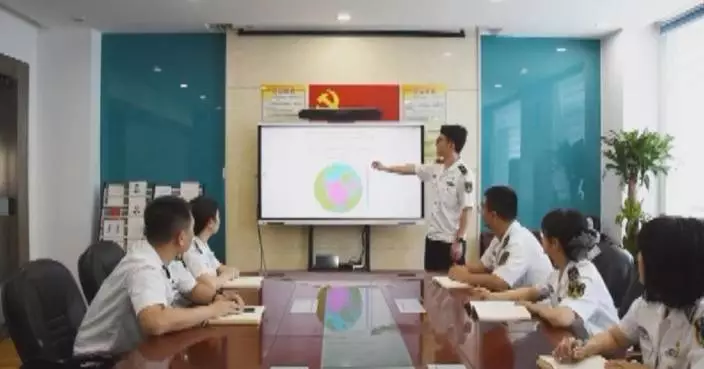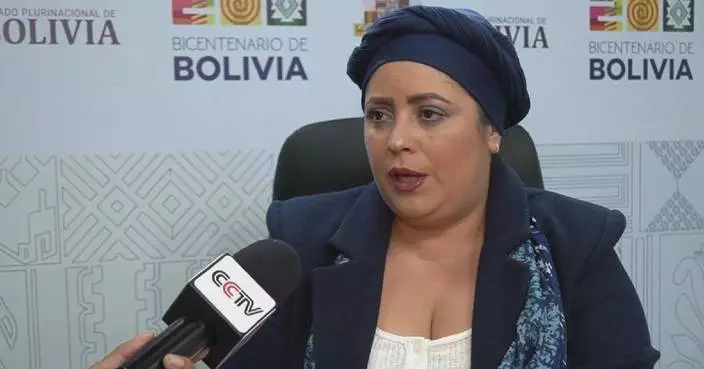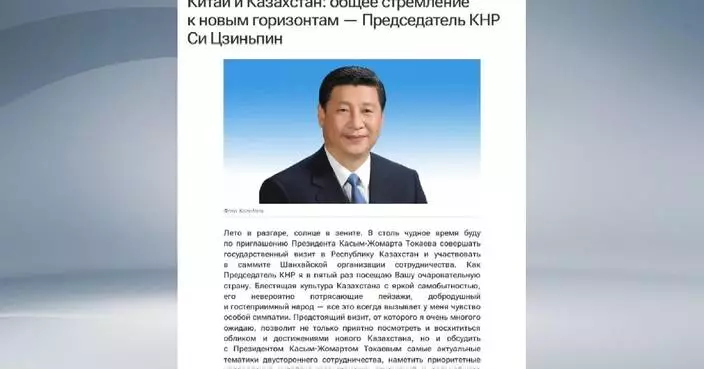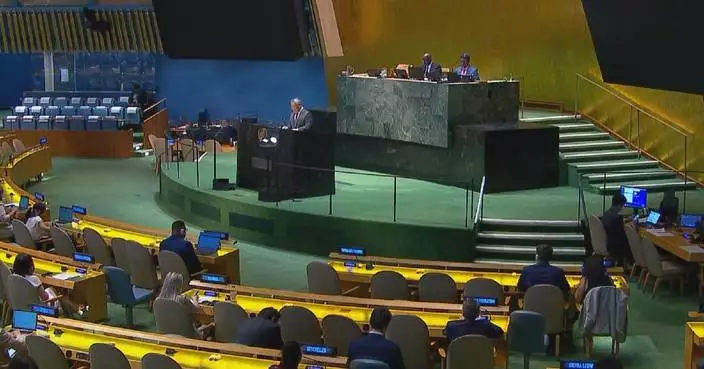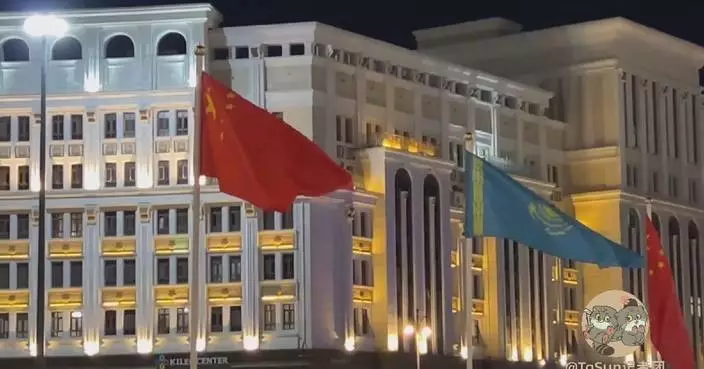Two programs from China Global Television Network (CGTN) Arabic won awards at the 24th Arab Radio and TV Festival which concluded on Saturday in the Tunisian capital of Tunis.
"Treasures and Masks", a documentary showing history of the ancient Egyptian and Shu (Sichuan) civilizations, and "My Youth in the Countryside" a radio program telling stories of young people launching businesses in their hometowns, won the first prizes in the categories of television special documentary and broadcasting economy respectively.
Hosted by the Arab States Broadcasting Union (ASBU), the event, which took place from Wednesday to Saturday, is the highest-level annual event in Arab radio and television and also serves as important platform for China-Arab media exchange and cooperation.
In tandem with the festival, a technology fair gathers 90 exhibitors displaying their innovations in field of media and communication.
China Media Group (CMG), the parent company of CGTN and China's flagship broadcaster, presented its innovative applications in media, highlighting technologies such as big data, cloud computing, and Artificial Intelligence (AI). CMG also promoted its strategic layout of "5G+4K/8K+AI" to the visitors.
Abdulrahim Suleiman, Secretary General of ASBU, expressed his expectations for enhanced media cooperation between China and Arab countries
"Now, we are trying to strengthen the cooperation. There are so many fields we designated for this cooperation, mainly of course content," he said.
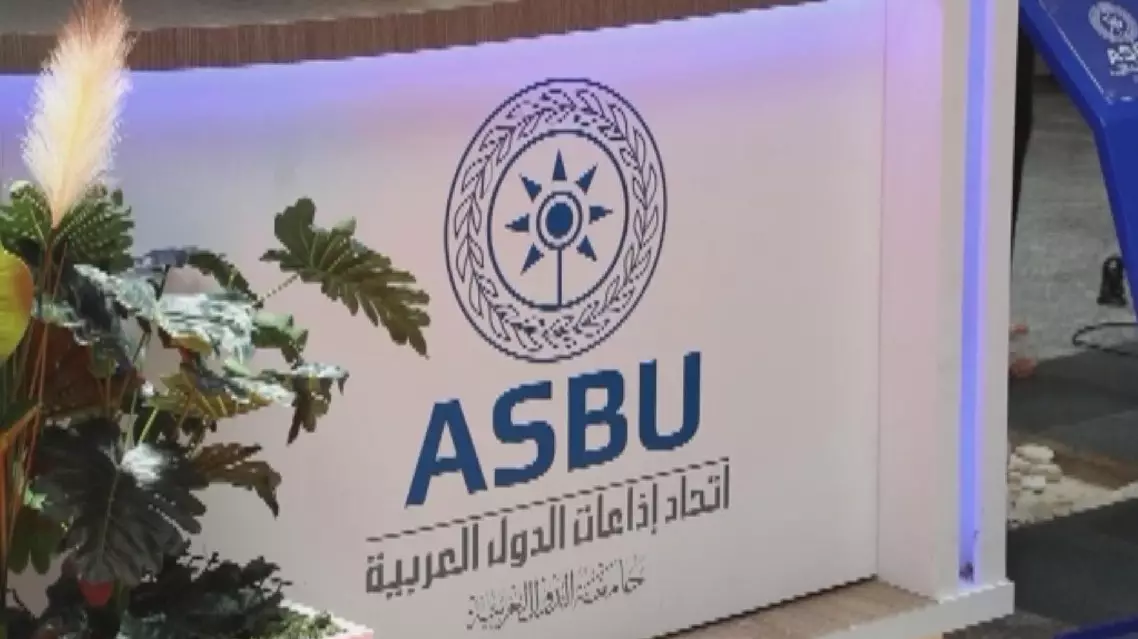
CGTN Arabic programs win awards at 24th Arab Radio and TV Festival
The United Nations General Assembly on Monday unanimously approved China's groundbreaking resolution aimed at enhancing international cooperation in AI capacity building, underscoring both global consensus and China's pioneering role in AI governance.
Co-sponsored by over 140 countries, the resolution marks the UN's first dedicated effort towards fostering global collaboration in AI development.
The resolution underscores the importance of fair business practices and inclusivity in AI development, addressing widespread international concerns. It reaffirms the UN's central role in promoting multilateral cooperation amidst a fragmented global governance landscape.
Experts underscore the resolution's critical implications for current AI policies and governance, emphasizing the global imperative of ensuring ethical and inclusive AI deployment.
"In previous global discussions, the focus may have been on the security, ethics, and governance of artificial intelligence. However, for many low- and middle-income countries, they lack even the most basic AI infrastructure, let alone innovation and application capabilities. So, the original purpose of AI technology was to empower sustainable development and bridge the digital divide. But now, this gap has widened, making governance issues exceptionally critical. Therefore, capacity building is a crucial core. Its goal is to help these countries bridge the digital divide, and ensure that the benefits of AI reach them," said Zeng Yi, an expert of U.N. High-Level Advisory Board on Artificial Intelligence.
Achieving fairness and inclusivity amid AI's rapid evolution has become a paramount issue, and thus become the resolution's principal advocate. China's initiative aims to address global AI disparities, responding to urgent global demands, particularly in developing nations.
"China has proposed listening to the voices of developing countries and low- and middle-income countries, to hear their concerns. But merely listening is not enough. That's why in this resolution, it is proposed the Secretary-General of the United Nations submit a formal report in the next session of the General Assembly to summarize the challenges faced by developing and low- and middle-income countries in the development and application of artificial intelligence. More importantly, what can the United Nations do? How can our member states better support the United Nations in addressing these issues and bridging such divides?" Zeng said.
Last October, China proposed the "Global AI Governance Initiative" during the third Belt and Road Forum for International Cooperation, which systematically elaborated on its approach focusing on AI development, security, and governance.
Experts noted the latest UN resolution reflects the core principles of the Initiative, particularly the human-centric and benevolent principles of AI, as well as China's consistent advocacy for strengthening international cooperation and assistance to developing countries.
In a proactive step, China announced it will host the World Artificial Intelligence Conference and High-Level Meeting on Global AI Governance in Shanghai from July 4 to July 6, aiming to bolster collaboration with developing nations.

UN expert sheds light on China's AI resolution for global cooperation





